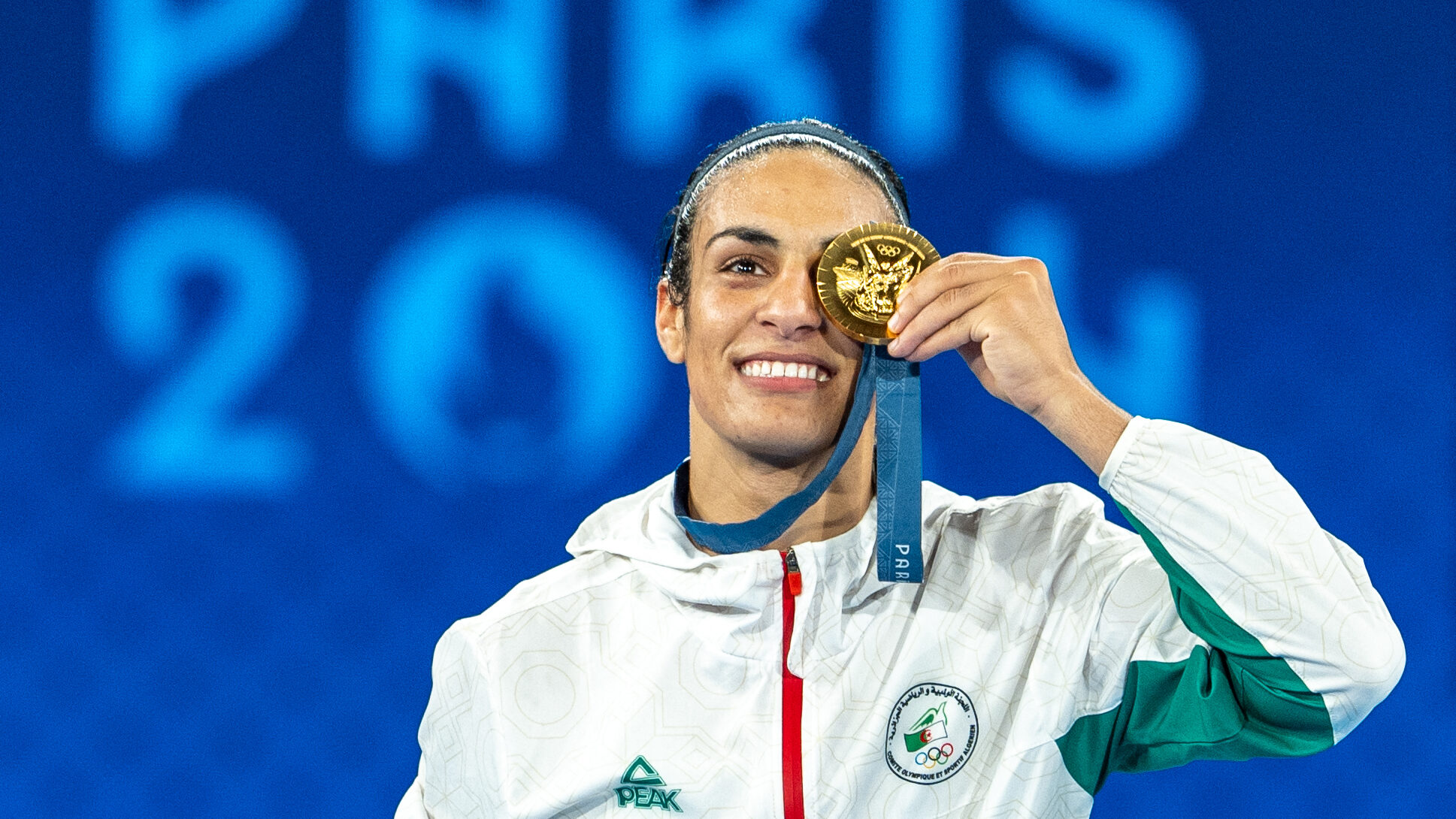About a month ago, not a single day passed without Imane Khelif’s name making headlines. One of the most significant scandals of the Paris Olympics—already controversial in many ways—involved the Algerian boxer who had previously been disqualified from the World Championships by the International Boxing Association (IBA). The disqualification was based on a test that revealed the presence of the male Y chromosome, which was considered to give her an unfair advantage over her biological female competitors. A similar scandal surrounded the Taiwanese boxer Lin Yu-ting, with both athletes winning in their respective events at the Olympics: Khelif in the women’s light-welterweight and Yu-ting in the women’s featherweight.
The Khelif case was covered in detail by Hungarian Conservative due to its Hungarian connection: the Algerian boxer faced Hungarian athlete Luca Hámori in the quarter-finals, where Khelif secured a unanimous 5-0 victory.
The participation of Khelif and Yu-ting at the Olympics have sparked international outrage, particularly among prominent figures on the right, such as Tesla and X owner Elon Musk, former US President Donald Trump, and J.K. Rowling, author of the Harry Potter books. In this article, we explore the Khelif case from a perspective not previously addressed in the columns of Hungarian Conservative. To do so, we enlisted the insights of Zsuzsa Csisztu, a Hungarian gymnastics champion, former Olympian, television presenter, and lawyer, who provides her perspective on witnessing Khelif and Yu-ting’s controversial performances from the viewpoint of a former female Olympian.
Incomprehensible Change of the Rules
‘At the 1988 Seoul Olympics, when I competed, we had to undergo oral mucosal sex tests in addition to doping tests before the competitions started, and only then were we allowed to compete in the women’s gymnastics events,’ recalled the former Olympian. The extent to which the world has changed since then is exemplified by the case of Khelif and the evolving standards set by the International Olympic Committee (IOC) in the lead-up to the Paris Olympics.
After the suspension of the IBA, the IOC took over the responsibility of organizing the boxing competition and decided to revert to a regulation that had previously been deemed flawed by experts. This regulation capped the testosterone levels of transgender athletes at ten nanomoles per litre.
‘The only way a biological woman could naturally produce such a high level of testosterone would be by injecting testosterone hormones, which would then lead to disqualification for doping,’
explained Zsuzsa Csisztu. It’s important to clarify that the athletes in question—Khelif and Yu-ting—are not transgender. Both are believed to have Disorders of Sexual Development (DSD), which can result in a physical competitive advantage over biological women.
Why the IOC leaders decided to implement this regulation is difficult to comprehend, but a similar case in the past might offer some insight. The case of Lia Thomas (born William Thomas), a transgender swimmer, sheds light on the broader impact of transgender athletes on the rights of female competitors, a topic that Zsuzsa Csisztu has also explored in greater depth.
Lia Thomas became the first transgender swimmer to win the US university championships in 2022. While Thomas was a mediocre competitor in the men’s championships, she outperformed Olympic silver medallist Emma Weyant in the women’s field. The only competitor to publicly speak out against Thomas’s competitive advantage due to her male physique was Hungarian Olympic swimmer Réka György, who wrote an open letter to the National Collegiate Athletic Association (NCAA). For this, she faced significant criticism and even threats.
Zsuzsa Csisztu also conducted an interview with Réka György, which was featured in the documentary Women’s Sport vs. Transgender. In the making of the documentary, Csisztu also spoke with two-time Olympic champion Donna de Varona, a renowned presidential sports advisor since the Ronald Reagan era. De Varona revealed that the Biden administration has been significantly influenced by the transgender and LGBTQ+ lobby, and that American universities are hesitant to challenge government policy due to fears of losing financial support.
However, US university sports operate under their own regulations and receive financial support from the government, giving the former considerable influence. This is not the case with international sports federations, which maintain greater autonomy. From this perspective, the reasons behind the change in regulations and the forces supporting Imane Khelif, as well as the speed with which they have rallied behind the athlete since the scandal broke, warrant careful consideration.
In this context, Zsuzsa Csisztu emphasized the importance of distinguishing between personal decisions in civilian life and fairness in competitive sports. She stated that while the personal decisions of adults are private matters, it is crucial that, in competitive sports, biological women should be compared to biological women and biological men to biological men. The responsibility for ensuring fairness and integrity in competitions rests primarily with the leaders of international sports federations, who understand the specific demands of their sports.
Finding a Solution
But what might be the solution to the current situation, which sets a troubling precedent and foreshadows a dark future for women’s sport? According to the former Olympian, the first step is to change the rules. Drawing lessons from the case of Lia Thomas, for instance World Aquatics (formerly FINA) have revised their regulations in 2022 to exclude such athletes from women’s sports, basing their decisions on various scientific and physiological studies. As a result, Lia Thomas was not allowed to compete in the 2024 Paris Olympics, and her appeal was rejected by the Court of Arbitration for Sport (CAS). A similar decision was made by World Athletics, led by Sebastian Coe, which banned athletes with DSD from competing in women’s events following the case of Caster Semenya, a South African runner who also has DSD.
‘The rules must be based on biology,’
Csisztu pointed out. It could be possible to create different categories, similar to what we see in the Paralympics, but the decision to implement such changes ultimately rests with the international federations.
The bottom line is that change is essential, as the current situation is unsustainable. ‘The results of 124 years of struggle for women’s sports rights are going down the drain,’ explained Csisztu. The fact that transgender athletes, or those with DSD are allowed to compete in women’s events is also discouraging younger female generations from participating in sports, particularly in disciplines like boxing. ‘Women’s sport must remain a women’s sport. There is no other way,’ Csisztu concluded.
Read more on the subject:








